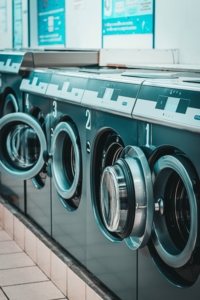How Cold Weather Can Affect Your Everyday Appliances
The low temperatures most of us are experiencing throughout the United States can cause a threat to not only ourselves but also to our everyday appliances. These fridged temperatures we’re facing can cause appliances to not only work less efficiently but can also lead to freezing, cracking and/or even an explosion. During the months of November – April it’s important to take extra precaution to help protect your appliances from unforeseen damaged due to the cold.
Here’s some insight as to how the cold affects appliances such as washing machines and refrigeration, and what measures we can take to get the most out of our equipment during these cold days ahead.
How Cold Weather Affects Refrigeration
Our fridges and freezers are one of the most used appliances within the household. However, with most households having an average of 2.55 people in them it can be hard to fit all your groceries into one place. Therefore, some of us also have a refrigerator or freezer in our garages or basements to help hold the overflow items. Although, it is nice to have some additional storage space, it’s also important to keep in mind that if temperatures drop below 60 – 80 degrees Fahrenheit your fridge might not cycle as frequently. This is mainly due to the thermostat on the refrigerator not calling for the proper cooling and defrost cycles to take place, which could ultimately lead to your refrigerator or freezer to stop working. If you can regulate your temperatures in these colder areas of your home, it could save you from having to repair and/or replace these larger appliances.
How cold weather affects washing machines
For most of us located near the ICM Controls headquarters of Syracuse, NY, we are facing temperatures as low as -1 this week. Did you know that these extremely low winter temperatures could affect how we do laundry? If you’ve done your wash recently and seem to think the job is just not getting done, you could be right! Laundry detergent requires water to be at least 60 degrees Fahrenheit, if not warmer. If the temperature in your washing machine is below 60 degrees, there’s a chance that the detergent is not dissolving properly. Although, the “cold” setting helps save money and energy it’s important to understand what setting are needed to ensure your detergent is dissolving based on your specific weather conditions. Otherwise, you’ll be using more water than necessary without achieving the end goal of having clean clothes. All in all, if you’re experiencing negative temperatures outside it might be beneficial to rely more on the “warm” or “hot” water setting to effectively and efficiently wash your clothes.
Thank you for reading our tips and tricks!








